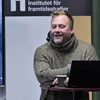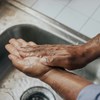fylls
Gender Differences in Resistance to Schooling: The Role of Dynamic Peer-Influence and Selection Processes
Journal of Youth and Adolescence, Volume 46, Issue 12, pp 2421–2445. Abstract Boys engage in notably higher levels of resistance to schooling than girls. While scholars argue that peer processes contrib

Cogito Machina - Investigating the emergence of artificial general intelligence
Is AGI emergent? In order to know, several questions need to be answered and this project aims to provide the answeres. What is AGI? What is required for a system to have it, and how might we know whether AGI is emergent in a system.
Cooperation through collective punishment and participation
Political Science Research and Methods Abstract We experimentally explore the role of institutions imposing collective sanctions in sustaining cooperation. In our experiment, players only observe noisy

Mårten Schultz: Risk and responsibility
Legal responsibility comes in different forms. Private law deals with questions of responsibility for harm that someone causes another. The responsibility requires three things: That someone was harme

Did the COVID-19 pandemic change our social norms?
As you might remember, a lot of our social behaviors changed during the COVID-19 pandemic, and how we perceived the behaviors of others. What was once deemed acceptable behavior became scrutinized, wi
Serena Olsaretti: Intergenerational justice and the rights and duties of procreators
Serena Olsaretti, ICREA Research Professor, Universitat Pompeu Fabra, Barcelona. ABSTRACT Questions about the rights and duties of procreators on the one hand, and about justice between (overlapping and
Mårten Schultz: Risk and responsibility (webinar)
Mårten Schultz is professor of law at Stockholm UniversityAbstractLegal responsibility comes in different forms. Private law deals with questions of responsibility for harm that someone causes another.

Expertise in crises
Governments are now reevaluating their post-pandemic preparedness. The project analyzes how society can use expertise to develop science-based policies in times of crisis.
Significant but inconclusive evidence
Where:Institute for Futures Studies, Stockholm Speakers: Richard Dawid (Stockholm), Ulrike Hahn (Birkbeck), Wendy Parker (Virginia Tech), Joe Roussos (IFFS), Karim Thebault (Bristol) and William Wolf II (Oxford). P before October 7.
Humanity - the biosphere's best hope?
Human activity often has a negative impact on the Earth's ecosystems. However, according to researchers Karim Jebari and Anders Sandberg, humans are still, in the long run, the best and actually the only








